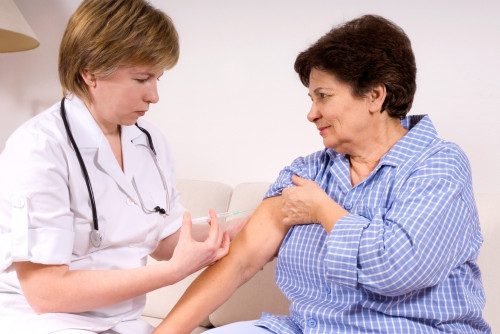 Maintaining a type 2 Diabetes program prevents emergency room visits
Maintaining a type 2 Diabetes program prevents emergency room visits
According to a March 2014 study by U.S. Centers for Disease control and reported in the Journal of the American Medical Association (JAMA), nearly 98,000 emergency-room visits occur in the United States each year due to insulin-related, low blood sugar. 30% of these visits resulted in hospitalization.
Symptoms of low blood sugar include anything from sweating, shakiness and nausea (start of low blood sugar); to inability to concentrate and confusion (serious low blood sugar); to seizures and loss of consciousness (severe low blood sugar).
According to the American Diabetes Association, in the last 10 years the incidence of diabetes in the US has risen by 50%[i]. Additionally, 25% of the population over the age of 60 has diabetes. Clearly, managing diabetes at home is an important senior care issue. When seniors can no longer maintain their own medical care, either family or other senior caregivers must be enlisted to help.
Why Diabetes Spikes over 60
Researchers have found that one of the biggest reasons diabetes spikes over the age of 60 is because, with children out of the house, meals become less planned. Seniors tend to just grab what’s convenient and this often includes junk food, fast food and processed foods.
Further, seniors who live alone don’t have to be accountable to anyone, and many let monitoring their blood sugar and eating healthy fruits and vegetables slide.
Importance of Education, the Meal Plan and Shopping
After what can be a frightening and often expensive emergency room visit, seniors and their families often redouble their efforts to keep blood sugar levels stable. While you must adhere to your doctor’s plan, these tips will help you begin managing type 2 diabetes at home.
- Build the blood sugar level check into a morning or evening routine. Doctors will explain your options for tracking your glucose levels at home.
- Discover meals that are lower in fats, salts and sugars. Consider the exploration and experimentation as an exciting new phase of your life. It may surprise you how quickly green leafy vegetables, lean proteins, whole grains and high-fiber foods—with the right seasonings and preparation—become your new favorites. Ask your doctor or your senior caregiver for help in meal planning if you need it.
- Make a grocery plan and get help with transportation and grocery carrying from family members or a paid caregiver. Get to know your local farmers’ market where vegetables are the starring attraction (and more delicious because they’re picked closer to ripeness). Plan ahead of time and prepare 3 days of salads or several servings of lean meat and vegetables. These can be your new fast food!
- Participate in moderate exercise. Local senior centers often have classes from basic balancing to chair yoga. Walking is a great form of exercise and even participating with an aerobics video designed for seniors at home builds muscle and more.
- Keep juice or glucose tablets nearby.
The Good News: Type 2 Diabetes Can Go into Remission
A study from University of Alabama at Birmingham concluded that type 2 diabetes remission IS possible when adults both lose weight and adopt regular exercise habits. While diabetes can have devastating consequences for adults of all ages, people who are over the age of 65 are at particularly high risk from diabetic complications due to the presence of age-related conditions such as vision loss, decreased mobility and sleep disturbances.
If you or a loved one need help keeping your diabetes management plan in place, Love 2 Live has caregivers trained in nutrition and exercise and will help keep blood sugar levels stable. Our caregivers also help carry out the doctor’s medical plans, ensuring regular glucose monitoring, proper meal selection and preparation, and sufficient exercise. If you have any questions about keeping type 2 diabetes under control and you or your loved one OUT of the hospital, please feel free to call us at 619-291-4663 or send an email here. We will keep you posted on all the recent news about seniors and type 2 diabetes management on Facebook page as well. Remember our in-home assessment is always FREE.
[i] http://www.nlm.nih.gov/medlineplus/news/fullstory_145022.html